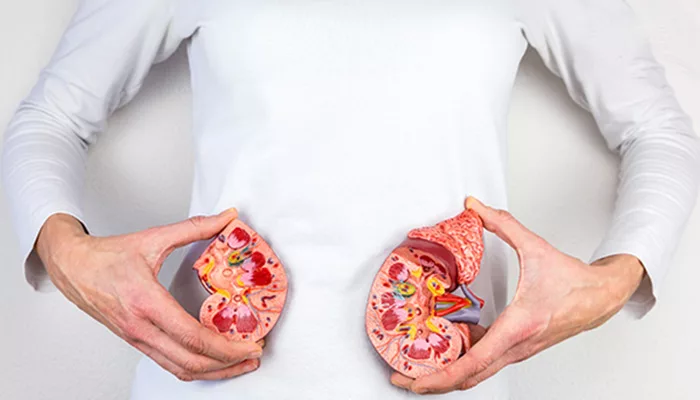Kidney stones- Symptoms and Treatment
December 26, 2020
Kidney stones- Symptoms and Treatment
Kidney stones are hard mineral deposits that are formed in the kidney. They are generally made up of calcium, waste material and uric acid. Usually, kidney stones are associated with a tremendous amount of pain. However, this happens when they have become considerably big in size. All kidney stones start small and become larger as more and more minerals are deposited on them. Some kidney stones may pass through your system without any pain while the ones that become larger are known to not only cause pain but also block the flow of urine and lead to urinary tract infections.
With the current lifestyle and levels of stress, kidney stones, have unfortunately become a common occurrence. In fact, the average age of affliction i.e. when signs of kidney stones become visible has drastically come down which is a cause of worry. Inadequate consumption of water, being bed-bound due to illness, a family history of kidney stones, obesity, excessive consumption of supplements such as calcium and vitamin C, eating a high-protein diet and low-fibre diet, consumption of excessive sodium i.e. salt are all leading causes of kidney stones.
Symptoms of Kidney Stones
Below are some of the common symptoms of Kidney stones:
- Frequent and urgent need to urinate
- Discoloured urine
- Foul-smelling urine
- Spasms and pain in the lower abdomen region and groin
- Fever and chills
- Nausea and vomiting
- Varying intensity of pain that comes and goes
Treatment for kidney stones
Initially, it is advisable for all those who notice signs of kidney stones to wait. In this phase, the doctor may advise you to let the stone pass on its own if it is not bothering you. This might take 2-4 weeks. Generally, the stone requires the patient to drink a lot of fluids in order to pass through the system naturally. Once the stone passes through your urine, the same can be tested for minerals. This analysis may help with kidney stone prevention.
The next non-surgical cure for kidney stones is medication. It is also possible to relieve the discomfort one feels while waiting for the stone to pass through the system using medication. Over-the-counter pain relievers can help. Patients are also known to experience nausea which can be relieved using medication. Changes in diet are also prescribed as a cure for kidney stones.
Your doctor might suggest a procedure if changes in the diet and the medications do not work. The need for kidney stone surgery also depends on the size, location and damage that the stone is causing to the kidney. Usually, stones smaller than 5 mm do not require kidney stone surgery.
Kidney stone prevention
Below are some effective ways to prevent kidney stones:
- Drink plenty of water
- Ensure that you get only as much calcium as you need
- Reduce the intake of sodium in your diet
- Limit animal protein
- Consciously avoid food that causes stones like beets, chocolates, eggs, rhubarb, etc.
How can one avoid the recurrence of kidney stones?
To reduce the rate of stone formation one requires certain blood, urine tests and stone analysis. Those who are identified to have certain metabolic defects should be treated medically to avoid the reformation of stones. Otherwise, most patients are advised to modify diet and increase water intake.
NOTICE BOARD
CONTACT US
CONTACT US
 Book Appointment
Book Appointment


.svg)
.svg)
.svg)
.svg)








